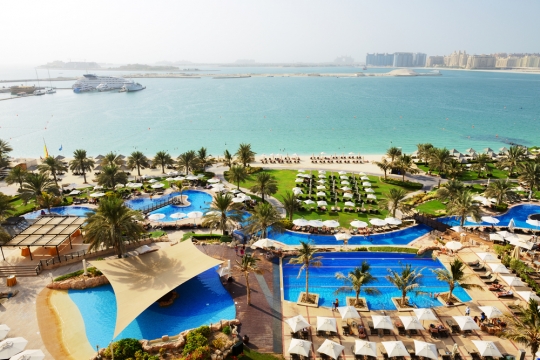A number of interesting changes have been underway in the United Arab Emirates lately, some of which could prove particularly useful and beneficial to the UAE expatriate community. In particular, the UAE healthcare system is set to receive a large overhaul, which is predicted to see exponential growth in the medical sector and provide a wealth of business and investment opportunities.In addition, this rise in demand could potentially create a large number of new jobs for those qualified and experienced in the field. There has also been a deal announced by the United Arab Emirates’ ministry of health which could benefit thousands of expats who suffer with chronic illnesses and struggle with their current healthcare cover. In this article, Expat Focus takes a look at the recent changes and what they mean for you.
UAE Announces Plans To Develop Healthcare System
A new law has been introduced in the UAE in line with plans to progress the country’s healthcare system. The law stipulates that the UAE will develop its medical services and products to compete with the best international practices. Dubai will be at the forefront of this progression, with the goal of developing healthcare facilities and services to such a high standard that they will become a lucrative commodity, increasing the number of “medical tourists” coming to the country. With a combination of some of the most advanced technologies and highly-trained medical professionals, the marketing of Dubai as a global medical services attraction could well mean seeing an increased demand for experienced expats in this particular field of work.
“Dubai is working towards achieving higher goals in the Global Competitive Index by promoting transparency, improving quality of services and products based on international best practices,” said Prasanth Manghat, chief executive of NMC Hospital.
The Dubai Health Authority (DHA) has released details of its health strategy for 2017 to 2020, which will primarily focus on inviting private investment into the sector, creating public-private partnerships which should ideally sustain the future growth that they predict on the horizon. There’s room for improvement, expansion, and growth with Dr Raza Seddiqi (CEO of the Arabian Healthcare Group) putting the current situation into perspective:
“At present in the UAE, there are about 13,500 beds — 8,500 in government and 5,000 in private hospitals — and these are meant to cater to a population of almost 10 million. This means that there is only one bed for 600 people. The gap is already present and will widen unless more investment from the private sector comes into the health care sector.”
For expats involved in business investments, particularly in the private medical sector, this provides a wealth of opportunities to be taken into consideration. With healthcare insurance now being mandatory throughout much of the UAE, facilities are seeing a steady rise in blue-collar workers seeking medical treatment, and thus the healthcare system in the UAE is set to see exponential growth. In addition to developing health services, the law will also focus on community welfare. Other advances that will benefit expats in the UAE include the news that the largest maternity hospital in Abu Dhabi (the Corniche) has once again opened its door to migrants. This follows the announcement four years ago that the hospital was no longer accepting foreign nationals as it had run out of room.
Expats In UAE To Get Free Healthcare
An interesting deal has been announced to mark this year, which is the Year of Zayed. This means it is 100 years since the birth of the late Sheikh Zayed bin Sultan Al Nahyan, the Founding Father of the UAE, who passed away in 2004. To commemorate this, the United Arab Emirates Ministry of Health, alongside pharmaceuticals company Novartis, will give expats free healthcare, which will encompass one year’s worth of medication and treatment. The initiative aims to help the estimated 3,200 individuals with limited or no healthcare cover who suffer from chronic illnesses. This will largely benefit cancer patients and those with conditions such as asthma, multiple sclerosis, psoriasis and various blood disorders. Eligible patients will need to be referred to the program by a physician and then assessed for appropriate treatment.
There is hope and potential for this program to be extended, but nothing pertaining to this has been confirmed yet. In the past, expats have not had any form of access to free healthcare in the UAE, regardless of the type of visa they hold. This is an interesting advance that, despite being temporary during the restructuring phase, could perhaps evolve into a more permanent solution.

